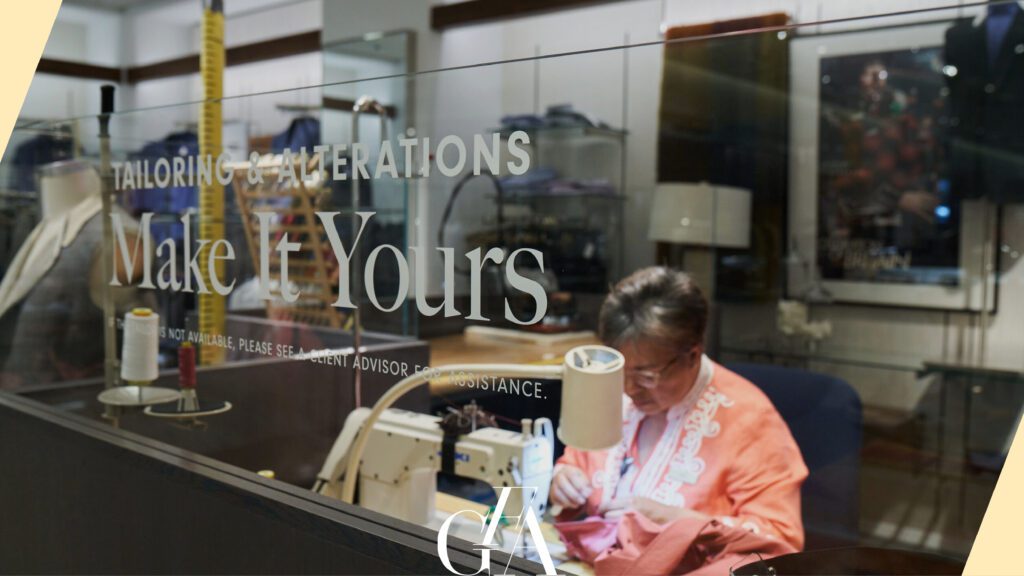Spotlight On: Neiman Marcus Group
Find out more about the Neiman Marcus Group’s ESG strategy

Spotlight On: Neiman Marcus Group
Find out more about the Neiman Marcus Group’s ESG strategy

Multi-brand retailers play a vital role in shaping consumer behaviour and driving industry change, as they serve as the primary point of contact between brands and their customers. This is aptly described by Geoffroy van Raemdonck, CEO, Neiman Marcus Group, who said, “We have the unique potential to impact crucial social and environmental issues through our valued relationships with two very influential groups—the world’s most desired brands and the luxury customer. We know that investing in our people and in a culture that inspires positive change is a vector of growth for our business.”
Guided by the company’s values, Neiman Marcus Group (NMG) is creating impact through the three pillars of its ESG strategy: advancing sustainable products and services, cultivating a culture of Belonging, and leading with love in its communities.
In June 2023, NMG released its second annual ESG report, outlining progress on the company’s 2025 goals and revealing opportunities for further progress in the months and years ahead. Explore some of the key takeaways below and discover the full report here.
Through a mix of energy efficiency, refrigerant management, electrification, and renewable energy initiatives, NMG reduced its Scope 1 and 2 emissions by 31% from a 2019 baseline in calendar year 2021. The company is on track to meet its goal to reduce them 50% by 2025. By working with Trane® by Trane Technologies, the company implemented energy efficiency upgrades in 13 locations, and transitioned 19.9% of its portfolio to renewable electricity in support of its goal to reach 100% by 2030.
In 2022, NMG completed its first Scope 3 emissions screening and found that Scope 3 emissions account for approximately 97% of NMG’s total greenhouse gas footprint, with the largest sources of Scope 3 emissions coming from Purchased Goods & Services. As such, NMG’s supplier engagement plan doesn’t just require its brand partners and vendors to measure their emissions, set science-based targets, implement abatement plans, and disclose their progress to CDP, but actually helps them to do so. In 2023, NMG signed on to the Supplier Leadership on Climate Transition Program to support its supplier engagement and climate change goals.
NMG reached its goal to go fur-free by 2023, in line with its Animal Welfare Policy. Following this, NMG was able to grow sales from sustainable and ethical alternatives by launching the Neiman Marcus Fashioned for Change and Bergdorf Goodman Conscious Curation edits. In FY22, sales of sustainable and ethical products exceeded $200 million and accounted for 5.12% of sales. NMG has a goal to raise this percentage to 10% by 2025.
The personal relationships NMG develops with its customers and their closets have always included services like alterations and restoration, helping to extend the lives of customers’ most loved luxury items. In recent years, NMG has expanded those services and substantiated its status as a consistent investor in circular economy initiatives—piloting partnerships with The RealReal (2015) and Rent The Runway (2017) and becoming the first luxury retailer to make an equity investment in resale with FASHIONPHILE (2019).
In its FY22 ESG report, NMG announced it has extended the useful life of 760,414 luxury items since FY21 through circular services like:
The company will meet its goal to extend the useful life of 1,000,000 luxury items by 2025 ahead of schedule.
While private label remains less than 1% of company revenue, championing human rights throughout NMG’s supply chain is an integral part of advancing sustainable products and services for its customers, associates, and communities. To date, 100% of imported private label vendors signed NMG’s new Supplier Code of Conduct and completed at least one training on human rights.
While NMG’s human rights programs are still in their infancy, the company has begun to invest in resources like a new Responsible Sourcing Manager and a partnership with ELEVATE—an LRQA company. Together, they are increasing transparency, building capacity, and supporting suppliers as they work to build a thorough human rights due diligence program.
Neiman Marcus Group is one of Global Fashion Agenda’s Associate Partners. Find out more about our partners here